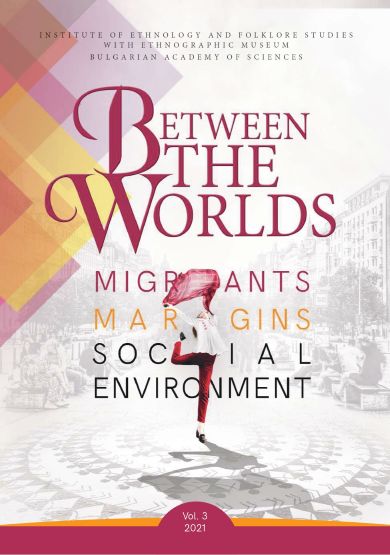Bulgarians in New Zealand – Adaptation and Integration Models
Bulgarians in New Zealand – Adaptation and Integration Models
Author(s): Tanya MatanovaSubject(s): Politics / Political Sciences, Anthropology, Social Sciences, Cultural Anthropology / Ethnology, Culture and social structure , Politics and Identity
Published by: Институт за етнология и фолклористика с Етнографски музей при БАН
Keywords: Bulgarian migrants; Bulgarian community in New Zealand; migrant institutions; adaptation and integration models
Summary/Abstract: Bulgarian emigration to New Zealand dates back to the second half of the 20th century. As of May 2019, between five and six thousand Bulgarians live on both islands of the state. Some community leaders of the successfully adapted first and second-generation migrants take part in the organisation and management of Bulgarian migrant institutions (schools, church communities, dance groups, the mass media, etc.). The aim of this research is to outline the characteristics of the social and economic adaptation and integration strategies of Bulgarians in New Zealand. Therefore, on the one hand, the text will present stories of Bulgarians who had integrated into the host community through their own professional skills in the spheres of entrepreneurship, commerce, arts, and sport. On the other hand, it will show examples of integration on the community level showcased by the participation of Bulgarian institutions – such as folklore dance groups and Bulgarian radio- and TV programs – in multiethnic events or multicultural environments. For the purpose of the study respondents’ answers to online questionnaires will be analysed, as well as selected pieces in Bulgarian online media (radio broadcasts, newspapers), Facebook and internet sites and groups. Additionally, the data will be enriched with archived empirical data gathered during fieldwork in May 2019. Bulgarian emigration to New Zealand dates back to the second half of the 20th century. As of May 2019, between five and six thousand Bulgarians live on both islands of the state. Some community leaders of the successfully adapted first and second-generation migrants take part in the organisation and management of Bulgarian migrant institutions (schools, church communities, dance groups, the mass media, etc.). The aim of this research is to outline the characteristics of the social and economic adaptation and integration strategies of Bulgarians in New Zealand. Therefore, on the one hand, the text will present stories of Bulgarians who had integrated into the host community through their own professional skills in the spheres of entrepreneurship, commerce, arts, and sport. On the other hand, it will show examples of integration on the community level showcased by the participation of Bulgarian institutions – such as folklore dance groups and Bulgarian radio- and TV programs – in multiethnic events or multicultural environments. For the purpose of the study respondents’ answers to online questionnaires will be analysed, as well as selected pieces in Bulgarian online media (radio broadcasts, newspapers), facebook and internet sites and groups. Additionally, the data will be enriched with archived empirical data gathered during fieldwork in May 2019.
Journal: Between the Worlds
- Issue Year: 3/2021
- Issue No: 3
- Page Range: 304-322
- Page Count: 19
- Language: English

